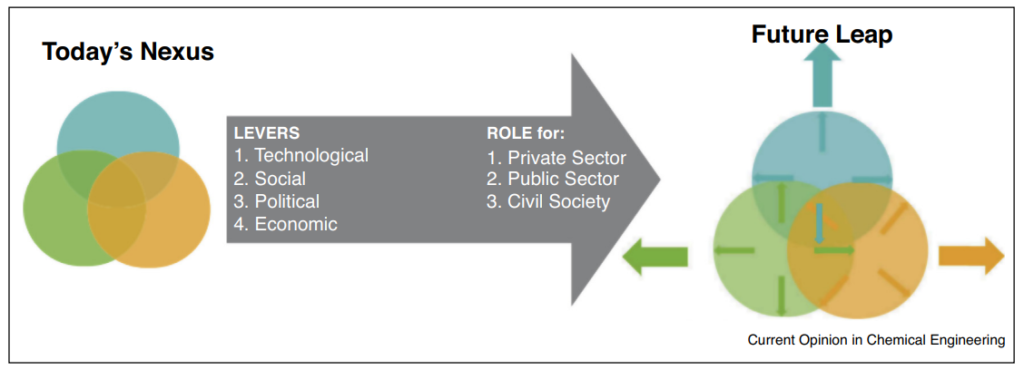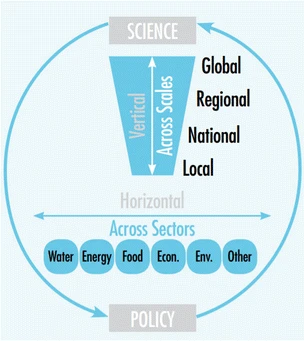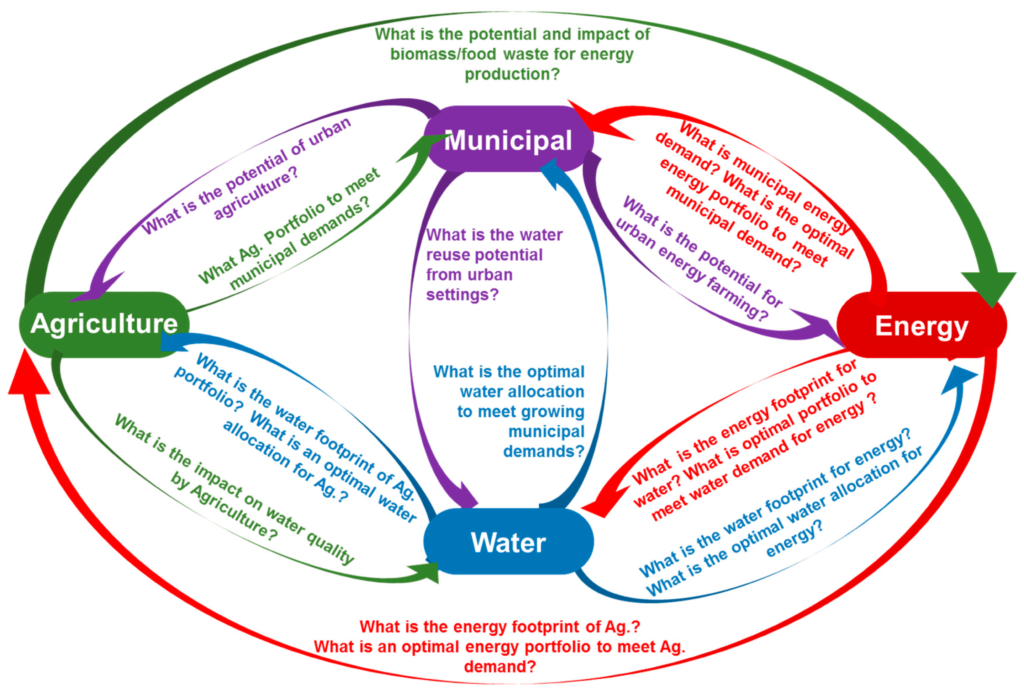National and International Funding for Financing Sustainable Development Goal 6: Case of Jordan

In September 2015, the United Nations General Assembly announced the list of new sustainable development goals (SDGs). These goals were put forward to guide the progress and development of member states as they plan into the future. Achieving the 17 goals described in the UN 2030 Agenda for Sustainable Development will require unprecedented levels of […]
Water–energy–food (WEF) Nexus Tool 2.0: guiding integrative resource planning and decision-making

The paper introduces a framework and set of methodologies that define the linkages between the interconnected resources of water, energy and food, and enable explicit corresponding quantifications. The paper presents a new water–energy–food (WEF) Nexus modelling tool (WEF Nexus Tool 2.0) based on that framework which offers a common platform for scientists and policy-makers to […]
Water-Energy-Food Nexus Framework for facilitating multi-stakeholder dialogue

“Link to full article”
Governance of the Water-Energy-Food Nexus: the Conceptual and Methodological Foundations for the San Antonio Region Case Study

Purpose of Review The goal of the case study is to provide an outline of the “governance” group’s approach to conducting research on nexus issues in this case study. Recent Findings A significant part of the Texas A&M Water-Energy-Food Nexus initiative focuses on issues of governance and public policy. The governance and public policy element […]
Beyond zero sum game allocations: expanding resources potentials through reduced interdependencies and increased resource nexus synergies

The 2030 goal for the implementation of the Sustainable Development Goals (SDGs) gives rise to challenging questions stemming from the inherent interconnections and potential competition between primary resources. ‘Economic Growth’ and ‘Clean Water and Sanitation’ are intimately related SDGs. Access to quality water is critical to growth, but as economies and populations grow, so does […]
Trade-offs and Decision Support Tools for FEW Nexus-Oriented Management

Purpose Existing assessment and decision support tools have limited application to real-world food-energy-water (FEW) Nexus challenges. Integrated assessment approaches are often discipline-specific or highly theoretical, lacking grounding in real-world FEW issues. Recent Findings FEW systems require application of integrated techniques that address multiple attributes of trade-off analyses, dynamic and disparate datasets, and difficult decision contexts. […]
Water–energy–food nexus: a platform for implementing the Sustainable Development Goals

This high- level panel was partially supported by the Texas A&M WEF Nexus Initiative, BMZ, European Union, and respective co-author institutions (American University of Beirut, OCP Policy Center, University of Zaragoza, Global Environmental Facility, Circle of Blue, Stockholm Environment Institute, National Scientific and Technical Research Council, International Commission on Irrigation and Drainage, World Bank, and […]
Developing Socio-Techno-Economic-Political (STEP) Solutions for Addressing Resource Nexus Hotspots

The challenge of meeting increasing water, energy, and food needs is linked not only to growing demands globally, but also to the growing interdependency between these interconnected resource systems. Pressures on these systems will emerge to become hotspots with different characteristics, and will require a fresh look at the challenges existing both within each of […]
Complexity versus simplicity in water energy food nexus (WEF) assessment tools

Approaching water, energy, and food, as interconnected system of systems, as an alternative to traditional silo-based resources planning and management approaches continues to fall short of expectations of its research-backed benefits. The lack of nexus applications in policy and decision making can be related to numerous factors, with the main barrier being the complex nature […]
Economic, social, and environmental evaluation of energy development in the Eagle Ford shale play

This research investigates the relation between water, energy, and transportation systems, using the growing hydraulic fracturing activity in the Eagle Ford shale play region of southwest Texas in which the local water systems and road infrastructure were not designed for the frequent transport of water into the production site and of produced gas and oil […]